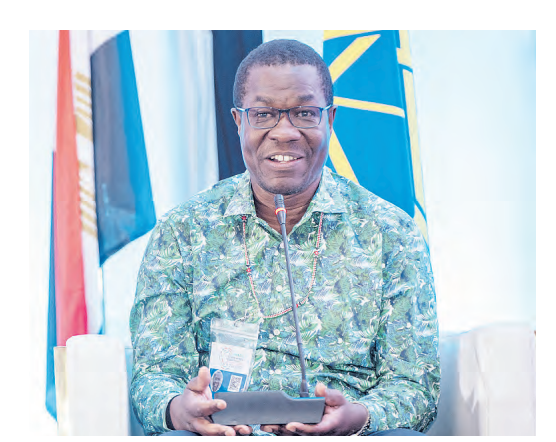

Kenya is seeking harmonised regulations and regional stability ahead of the cross-border power trade among the 13 Eastern Africa Power Pool member states.
The trade set for quarter one of 2025 will be done through a common electricity-trading platform.
The government is also keen on mechanisms to address technical and financial constraints as the region moves to effect the much anticipated energy trade under the Eastern Africa Power Pool (EAPP), with Kenya eyeing cheaper electricity imports to offset demand and stabilise its grid.
According to Energy Cabinet Secretary Opiyo Wandayi, Kenya fully supports ongoing efforts of development of regional power market, an initiative that will ensure reliability and sustainability of the regional power market.
Speaking at the three-day Eastern Africa Power Pool (EAPP) Regional Power Trade Conference in Mombasa, which ends today, Wandayi, noted there has been progress in the development of regional electricity infrastructure in interconnecting countries to allow bilateral trading and a centralised competitive market.
This includes Kenya’s interconnection with Ethiopia through the 500Kv high voltage direct current transmission line (Sodo–Moyale– Suswa power line completed in November 2022 ), which allows the importation of 200MW of renewable energy.
Furthermore, Kenya has finalised construction of the 400Kv transmission line interconnection with Tanzania which once energized, it will not only enable Tanzania harness renewable energy capacity in Kenya, but also leverage Kenya’s transmission infrastructure to access renewable energy from Ethiopia.
The 132km 400kV Lessos-Tororo line (Kenya – Uganda interconnector), a double circuit transmission line on the other hand evacuates up to a maximum of 1,200MW from the existing Lessos substation (Kenya) to the Kenya – Uganda border near Tororo substation (Uganda).
To support the regional power pool and trade in electricity, member states are working on putting in place an Independent Regulatory Board IRB, an energy management and pricing system, and a grid coordination unit.
“The existence of a strong regional regulator is paramount for increasing transparency and trust,” Wandayi said, “As policy makers, it is our duty to create an enabling environment for this market to thrive. This includes fostering a culture of cooperation, addressing any bottlenecks in the regulatory or technical frameworks, and ensuring that our national priorities align with regional goals.”
His sentiments were echoed by the EAPP Council of Ministers, which affirmed that member countries are committed to creating institutional mechanisms, processes and platforms needed for the launch of an efficient regional power market.
“Aligning regional and national policies is key to achieving a seamless transition to a unified market framework. By championing the benefits of regional integration, lower costs, enhanced resilience, and accelerated renewable energy development, we can inspire the collective action needed for sustainable progress,” the council’s chairperson Okasai Opolot, said.
The regional energy ministers highlighted the benefits of using a market-driven approach to boost regional power trade, discuss the roadmap for the market launch, and share insights, knowledge, and best practices from other regional and international power pools.
Power trade within the EAPP will enable member countries to harness the region’s tremendous endowment of low-cost renewable energy resources with a vision to increase both access to electricity as well as enhance reliability and affordability of electricity supply.
“As we finalise the comprehensive market rules and agreements, the technical design of the market trading platform is also approaching completion. The EAPP power market is designed for adaptability, accommodating national differences and aligned with international standards, ” EAPP Secretary General James Wahogo said.
Countries in the region’s power pool are Kenya, Tanzania, Uganda, Sudan, South Sudan, Burundi, DR Congo, Djibouti, Ethiopia, Egypt, Somalia, Rwanda and Libya.

